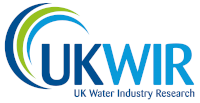Evolution of Big Questions
28/11/2019
BQ1- How do we halve freshwater abstractions in a sustainable way by 2050?
The pathfinder project for this Big Question was completed in June. The gap analysis identified 36 projects for inclusion in the RouteMap, of which three were highlighted as priorities:
- Better understanding the benefits and impacts of abstraction reduction: Seeks to define the circumstances in which the significant reduction of abstraction is likely to have wholly positive or net positive benefits, but with the negative impacts that could arise being identified, and circumscribed, to enable all-round best decisions to be made
- Understanding current and future household consumption: Collates and analyses household consumption data from throughout UK & Ireland to provide an overall understanding of consumption, night use, plumbing losses, and supply pipe leakage. Developing options for UK & Ireland longitudinal consumption monitor will provide a temporal understanding
- Design and testing approaches to engagement (segmentation): Builds on the outputs of a previous UKWIR study on integration of behavioural change into water efficiency approaches. This would be followed by longitudinal and control based studies, to guide future engagement, from which future engagement strategies could be developed, ultimately at national level.
BQ5 - How will we deliver an environmentally sustainable wastewater service that meets customer and regulator expectations by 2050?
The BQ stage 1 project has been awarded to Stantec/Twenty65 with the objective to ‘… consider the definition of an environmentally sustainable wastewater service, and identify and prioritise the research requirements …’.
The first stakeholder meeting for this project took place on 4 July 2019 and a broad invite workshop took place on 12 September 2019, see next column, where 19 organisations were represented. Actions and outcomes from which will feed into the RouteMap development.
BQ6 - How do we achieve zero uncontrolled discharges from sewers by 2050?
The Stage 1 project looking at ‘Research gap analysis and barriers to implementation’, is being delivered by Isle Utilities and had its first steering group meeting on 5 September 2019. The outputs from this project, due to be delivered by the end of April 2020, will inform and shape the RouteMap for this BQ.
The First Workshop for Wastewater Big Question
The first workshop for this Big Question was held at Sheffield University on 12th September 2019.
This brought together a wide range of stakeholders to debate and define what ‘an Environmentally Sustainable Wastewater Service’ means.
The workshop was led by Dr Kamal Birdi from Sheffield University, who used the ‘CLEAR IDEAS’ framework to engage participants in developing their thoughts on this question. Through a combination of tasks undertaken as individuals, in groups and in plenary, delegates were asked to:
- create initial definitions of ‘an environmentally sustainable wastewater service’
- come up with measures by which performance might be assessed
- identify key features that should comprise ‘an environmentally sustainable wastewater service’
- assess and prioritise the key features.
- select priorities.
This produced a wide range of ideas and initial consensus around a range of priorities. This provided the team with material from which to develop a draft definition. The output of this workshop will feed directly into development of a prioritised set of research needs and RouteMap to 2050.
The workshop was attended by over 35 people representing 19 different organisations including water companies, quality regulators, contractors, academia and wider interest bodies.
BQ7 - How do we achieve zero customers in water poverty by 2030?
The pathfinder phase of this project is underway and expected to finish in March 2020. It will look at defining water poverty and evaluating existing information and approaches to reduce water poverty.
BQ10 - How do we remove more carbon than we emit by 2050?
Outcomes have been agreed for this BQ and consideration has also been given as to how the BQ work can support the Water UK Public Interest Commitment for carbon (net zero carbon industry by 2030).
